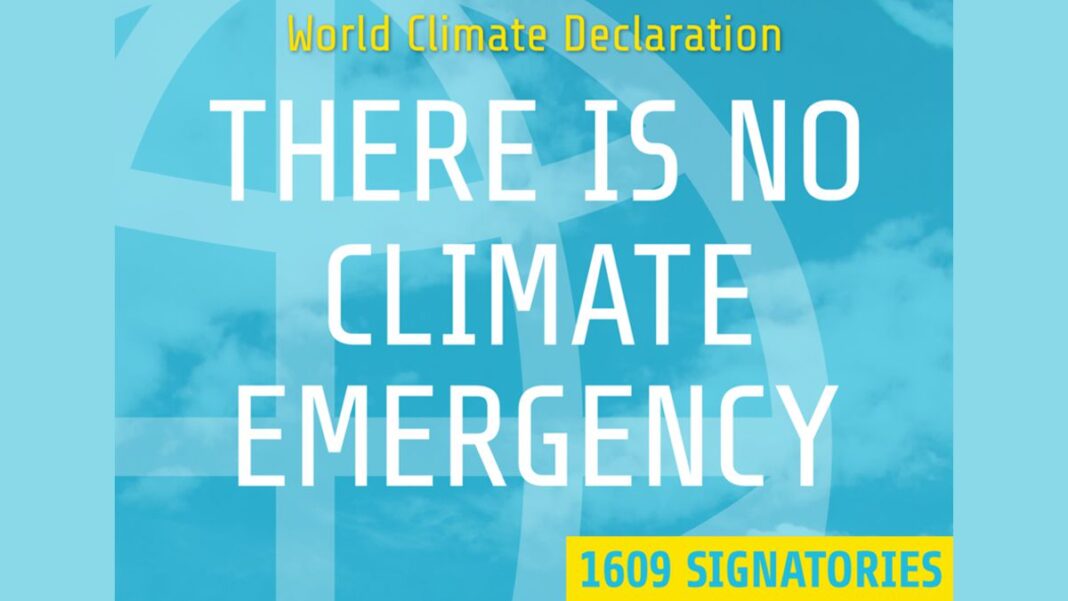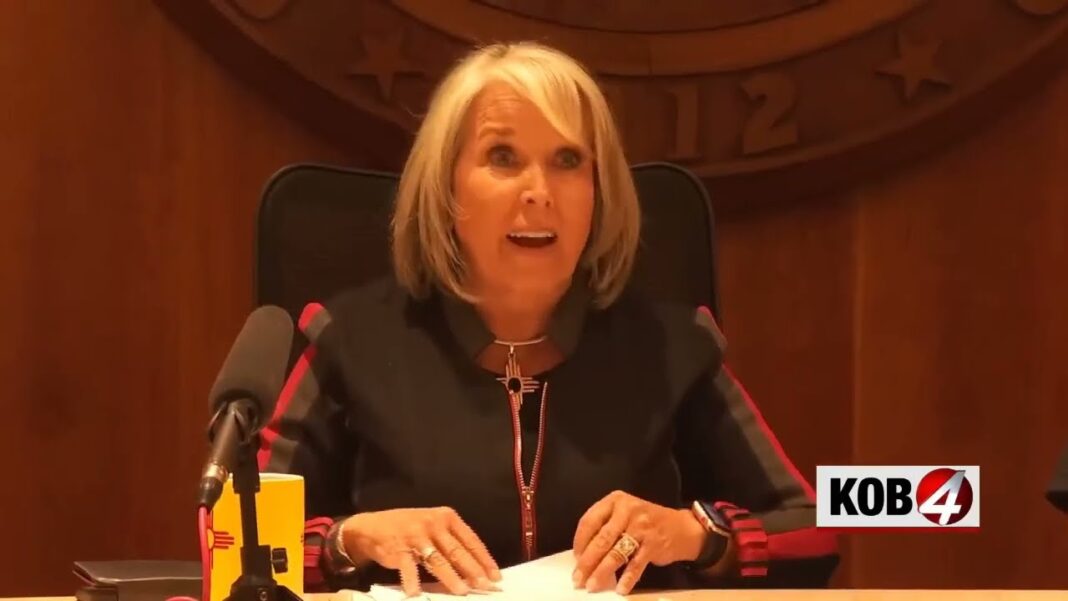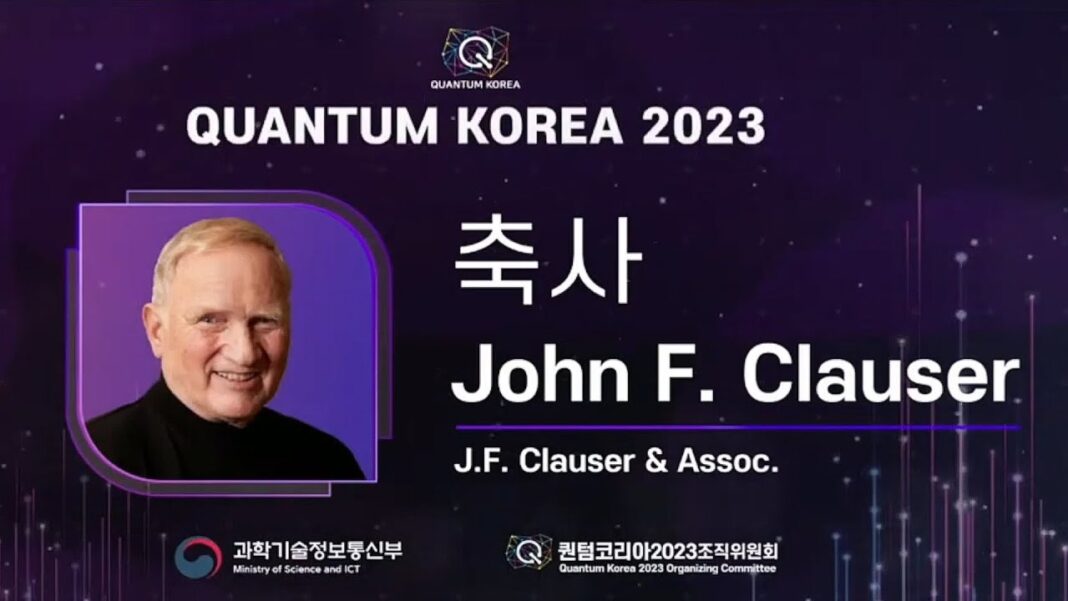Climate science should be less political, while climate policies should be more scientific. In particular, scientists should emphasize that their modeling output is not the result of magic: computer models are human-made. What comes out is fully dependent on what theoreticians and programmers have put in: hypotheses, assumptions, relationships, parameterizations, stability constraints, etc. Unfortunately, in mainstream climate science most of this input is undeclared.
To believe the outcome of a climate model is to believe what the model makers have put in. This is precisely the problem of today’s climate discussion to which climate models are central. Climate science has degenerated into a discussion based on beliefs, not on sound self-critical science. We should free ourselves from the naïve belief in immature climate models. In future, climate research must give significantly more emphasis to empirical science.
There is no climate emergency
A global network of over 1609 scientists and professionals has prepared this urgent message. Climate science should be less political, while climate policies should be more scientific. Scientists should openly address uncertainties and exaggerations in their predictions of global warming, while politicians should dispassionately count the real costs as well as the imagined benefits of their policy measures.
Natural as well as anthropogenic factors cause warming
The geological archive reveals that Earth’s climate has varied as long as the planet has existed, with natural cold and warm phases. The Little Ice Age ended as recently as 1850. Therefore, it is no surprise that we now are experiencing a period of warming.
Warming is far slower than predicted
The world has warmed significantly less than predicted by IPCC on the basis of modeled anthropogenic forcing. The gap between the real world and the modeled world tells us that we are far from understanding climate change.
Climate policy relies on inadequate models
Climate models have many shortcomings and are not remotely plausible as global policy tools. They blow up the effect of greenhouse gases such as CO2. In addition, they ignore the fact that enriching the atmosphere with CO2 is beneficial.
CO2 is plant food, the basis of all life on Earth
CO2 is not a pollutant. It is essential to all life on Earth. Photosynthesis is a blessing. More CO2 is beneficial for nature, greening the Earth: additional CO2 in the air has promoted growth in global plant biomass. It is also good for agriculture, increasing the yields of crops worldwide.
Global warming has not increased natural disasters
There is no statistical evidence that global warming is intensifying hurricanes, floods, droughts and suchlike natural disasters, or making them more frequent. However, there is ample evidence that CO2-mitigation measures are as damaging as they are costly.
Climate policy must respect scientific and economic realities
There is no climate emergency. Therefore, there is no cause for panic and alarm. We strongly oppose the harmful and unrealistic net-zero CO2 policy proposed for 2050. If better approaches emerge, and they certainly will, we have ample time to reflect and re-adapt. The aim of global policy should be ‘prosperity for all’ by providing reliable and affordable energy at all times. In a prosperous society men and women are well educated, birthrates are low and people care about their environment.
Epilogue
The World Climate Declaration (WCD) has brought a large variety of competent scientists together from all over the world*. The considerable knowledge and experience of this group is indispensable in reaching a balanced, dispassionate and competent view of climate change.
From now onward the group is going to function as “Global Climate Intelligence Group”. The CLINTEL Group will give solicited and unsolicited advice on climate change and energy transition to governments and companies worldwide.
* It is not the number of experts but the quality of arguments that counts
World Climate Declaration AMBASSADORS
Nobel Laureate Professor John F. Clauser / USA
Nobel Laureate Professor Ivar Giaever Norway/USA
Professor Guus Berkhout / The Netherlands
Dr. Cornelis Le Pair / The Netherlands
Professor Reynald Du Berger / French Speaking Canada
Barry Brill / New Zealand
Viv Forbes / Australia
Dr. Patrick Moore / English Speaking Canada
Jens Morton Hansen / Denmark
Professor Lászió Szarka / Hungary
Professor Seok Soon Park / South Korea
Professor Jan-erik Solheim / Norway
Stavros Alexandris / Greece
Ferdinand Meeus / Dutch Speaking Belgium
Professor Richard Lindzen / USA
Henri A. Masson / French Speaking Belgium
Professor Ingemar Nordin / Sweden
Jim O’brien / Republic Of Ireland
Professor Ian Plimer / Australia
Douglas Pollock / Chile
Dr. Blanca Parga Landa / Spain
Professor Alberto Prestininzi / Italy
Professor Benoît Rittaud / France
Dr. Thiago Maia / Brazil
Professor Fritz Vahrenholt / Germany
The Viscount Monckton Of Brenchley / United Kingdom
Dušan Bižić / Croatia, Bosnia And Herzegovina, Serbia And Monte Negro
World Climate Declaration: There is No Climate Emergency
World Climate Declaration plus all signatories in pdf
WCD-version-081423







